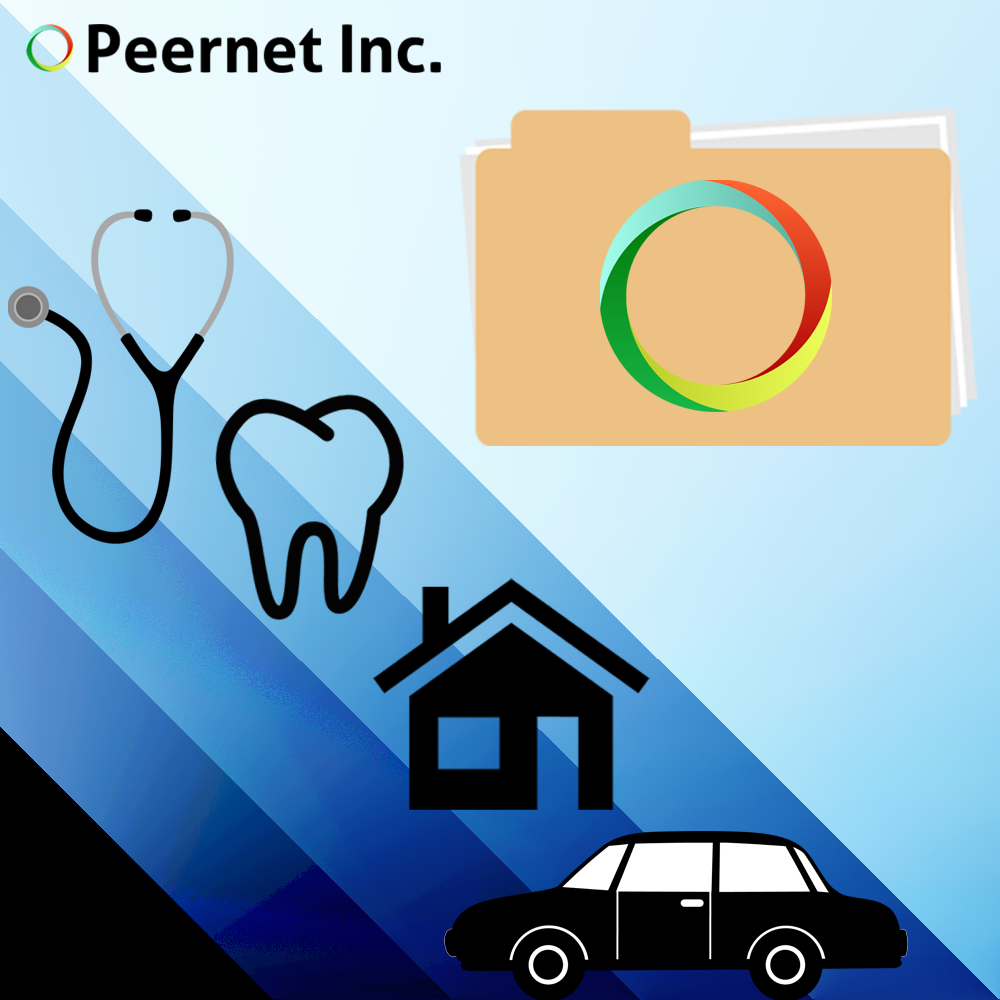5 Problems an Insurance Company can Solve with the Right Document Conversion Software

Few industries rely more heavily on document conversion tools and digital documentation than the insurance field. Insurance companies around the world have a need to securely store vast amounts of insurers’ documentation, claims, records of correspondence, etc. While digital documentation has its obvious benefits, it also creates challenges, including the demand caused by a high volume of daily conversions and difficulties integrating with proprietary software. PEERNET offers both a desktop and automated batch conversion solution that will seamlessly integrate file conversion into your organization’s operations, so that you can meet your insurance document conversion needs with the right document conversion tool for you.
1. Problem: Proprietary software which lacks the ability to convert to TIFF.
Details: It is common for insurance companies to use proprietary software with which insurance agents process claims and access insurers’ information. Owing to the age of the software used as well as changes in available technology and data storage techniques, it often lacks TIFF conversion. When upgrading proprietary software is not an option due to cost or a reliance on legacy programs that cannot be changed, many insurance companies will instead opt to use a product such as PEERNET’s TIFF Image Printer or Document Conversion Service. These programs serve as the bridge between their proprietary software and the specific TIFF file format required by their chosen electronic document filing system.
Possible solutions: TIFF Image Printer is a desktop solution that insurance agents, for example, would engage with directly. In this case, a user would “print” directly from their proprietary software to create the required TIFF page. The same step of printing directly to the TIFF Image Printer allows creation of TIFF images from other file types they work with everyday, such as PDF, JPEG, Word, Excel files and more. Customize the printer settings to save the images in a specific location without prompting, set up a naming convention for the created files, and implement a post-conversion action such as previewing the created image or automatically adding it to an archive system. This is an ideal solution for companies looking to streamline the creation of TIFF images directly from their proprietary software and other applications.
A less hands-on approach, Document Conversion Service also bridges the need for TIFF creation between proprietary software and electronic document filing systems by means of its included Watch Folder service. With this approach, the insurance agents would save all files they need converted to a specific, monitored location for automatic conversion. Like the TIFF Image Printer, the same customization options of file naming conventions and post-conversion processing can be set. Document Conversion Service, and its Watch Folder service, checks any number of watched folders at designated intervals and batch converts all documents it finds in parallel, making it ideal for companies needing high volume conversion. Most commonly an insurance agency would adopt this solution if their proprietary software was only able to produce PDF files and they wanted them all converted to TIFF without the direct engagement of staff.
2. Problem: Your company has a high volume of insurers’ documentation and claim paperwork to convert daily.
Details: An insurance company, depending on the size, can easily have upwards of thousands of files daily that require conversion to a file format, such as TIFF image, that is suitable for archiving purposes. These files can come from a variety of sources and include both documentation uploaded by insurers and internal claim documents created by insurance agents. Processing these documents and making them accessible on the company’s website within a reasonable amount of time requires a document conversion tool that can scale between the demands for conversion and the company resources available to perform the conversions.
Possible solutions: PEERNET’s Document Conversion Service offers high-throughput with true parallel conversion and the ability to scale up based on conversion demands. The conversion service runs 24/7 without input from a user. A recent addition to Document Conversion Service and its included Watch Folder service is clustering and failover support, which allows multiple servers to work in tandem on a shared collection of files while providing load balancing and failover support. This approach is ideal for large volume batch conversions and clients requiring 100% conversion stability, such as an insurance company.
3. Problem: Electronic filing systems require specific TIFF file formats for archiving purposes.
Details: The nature of the insurance industry with its myriad of client applications, claims, policies, endorsements and other documents creates a need to store vast amounts of documents in an easily accessible format. In the last decade, technical improvements have made it possible for all that paperwork to be stored in electronic filing or archiving systems that provide insurance agents and adjustors with real-time access to client documentation. Most commonly, these types of systems require input data to be in a specific TIFF file format.
Possible solutions: PEERNET conversion software, including TIFF Image Printer and Document Conversion Service, specializes in high-quality TIFF conversion, guaranteeing the fidelity of your converted documents. Our products have the added benefit of being able to produce the exact TIFF file format your organization requires for your chosen electronic filing systems. While some might consider TIFF to be a singular file format, there are in fact many variations. PEERNET has accounted for the fact that electronic filing or archiving systems are very particular about the TIFF file format used for the input data.
4. Problem: Conversion of the vast amounts of uploaded insurers’ information to an insurance company’s website in an accessible format to provide real-time access for agents.
Details: In recent years many insurance companies have moved towards online submission of insurers’ documentation when they make a claim, rather than having to mail a paper copy. This can result in the upload of prescription, dental and health receipts in many different formats such as JPEG, PNG or PDF. This gives rise to the need to convert these uploaded files before saving them in a document retrieval system for easy access by insurance agent for review as well as for long-term storage of the files.
Possible solutions: Document Conversion Service is the ideal tool to handle this type of problem. A 24/7 automatic batch converter, Document Conversion Service is able to continuously convert uploaded files of a variety of formats to TIFF in the background as part of your organization’s website. As a full-fledged Windows® service, the conversion process runs without the need for an active signed-in user. Clustered conversion and conversion process monitoring methods ensure minimal downtime. Adaptable, files created by Document Conversion Service can incorporate existing naming sequences and file structures for seamless integration into new and legacy document retrieval systems.
5. Problem: Email claim submission requiring significant staff engagement in order to convert and save the insurers’ documentation appropriately.
Details: Some insurance agencies utilize an email system for submission of insurers’ documentation for claim processing. This can lead to significant loss of valuable time as staff then need to open every submission, convert to TIFF and save to a specific location. In addition, email correspondences with insurers often include information relevant to a claim and therefore needs to be saved in the insurers file.
Possible solutions: Document Conversion Service has the ability to extract and convert any documents attached to Outlook Message Archives (*.msg) as well as the email itself. Therefore, staff would no longer need to engage with the conversion or saving procedure of email attachments, thereby freeing up their valuable time for other tasks. Instead, staff could simply save all relevant Outlook emails to a folder monitored by the Watch Folder service. Document Conversion Service would then pick up these *.msg files, and batch convert the messages and attachments, saving the resultant files to a designated location. This Watch Folder feature includes the ability to focus on or exclude specific file formats as well.
Learn more about PEERNET Products that are ideal for the Insurance Industry.
TIFF Image Printer: Helps your company start converting documents to TIFF as quickly and easily as possible. This tool allows TIFF to show up as an option on the standard Windows print menu. For organizations that want to make the transition to paperless as painless as possible, this is a great option.
Document Conversion Service: The solution you need to automate your file conversion process, saving your organization incredible amounts of time and resources. The industry-leading automated, batch file conversion solution. Capable of converting documents in the background, 24/7. Used by trusted institutions and organizations around the world for their file conversion needs.
We’re always happy to lend a helping land. Just get in touch with us to let us know what problems your organization is having trouble with, and we’ll get back to you to let you know how our document conversion tools can help solve your needs.



